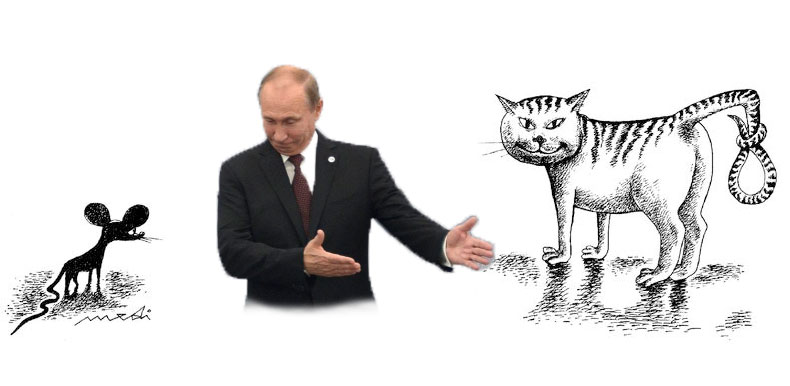
Images mixed by author.
Senior representatives from Twitter, led by its head of global public policy, Colin Crowell, have met with Alexandr Zharov, the chief of Roscomnadzor, Russia's federal communications agency. After the pow wow, Zharov announced to reporters that Twitter has agreed to create a special representative to Russia. Based in Dublin, where Twitter has its international headquarters, the world's largest microblogging service will dedicate someone to liaison with the Russian government, to handle legal requests to censor accounts accused of extremism and other crimes. Twitter hasn't yet decided whom to cast in this new role, though Crowell and his team tomorrow will consult with the Russian Association for Electronic Communications (RAEC), a noncommercial group that brings together major players in Russia's communications market.
Zharov says that Twitter has agreed to obey Russian demands to block access to various “extremist blogs,” including the Ukrainian far-right group Pravyi Sektor, which is already unavailable to Twitter users who set their accounts’ location to Russia. (Admittedly, this form of censorship is easily circumvented – users need only change their settings.) How Twitter proceeds from here is still unclear. Zharov's statement implies that Twitter will most likely block more accounts in the future, when Roscomnadzor demands it. But will Twitter block those accounts in a more effective way? Will Twitter delete the accounts outright? Zharov claims that his concerns are not limited to Russian users, meaning that Roscomnadzor might insist on account-deletion in addition to account-blocking.
In an official statement on Roscomnadzor's website, the agency says it's sent Twitter a list of 12 accounts identified as extremist by Russia's Attorney General. “Roscomnadzor expects that [Twitter's] administrators will take action to delete these accounts or restrict access to them within Russian territory,” reads the press release. According to Max Seddon at BuzzFeed, Twitter denies that it has promised to delete any accounts.
Today and tomorrow, Twitter executives will ponder whom to tap to be their go-between with Russian censors, but Roscomnadzor hasn't wasted any time naming its contact person, Maxim Kzensov, the agency's deputy director, who made headlines last month after threatening to shut off access to Twitter and Facebook “in a matter of minutes.” Kzensov's comments appeared in an interview, where he criticized American Internet giants for failing to establish legal representation in Russia, allowing them to circumvent censorship and taxation laws.
Creating an official liaison to Russia marks an important concession to the Kremlin, but Twitter is stopping short of establishing a formal legal office in Russia. In May, Kzensov complained that “Twitter and Facebook don't exist legally in Russia,” though the latter does have a Russian-language manager based in London. (Kzensov was likely referring to Ekaterina Skorobogatova, Facebook's Emerging Markets Growth Manager.) Google, on the other hand, has had an office in Moscow since 2005.
A pattern is emerging in the relationship between the Kremlin and Twitter, where Moscow makes sweeping demands of the website and then touts the resulting compromise as a victory for Russian sovereignty. The game can't go on forever, however, and it is only a matter of time before Twitter's wiggle room runs out.







